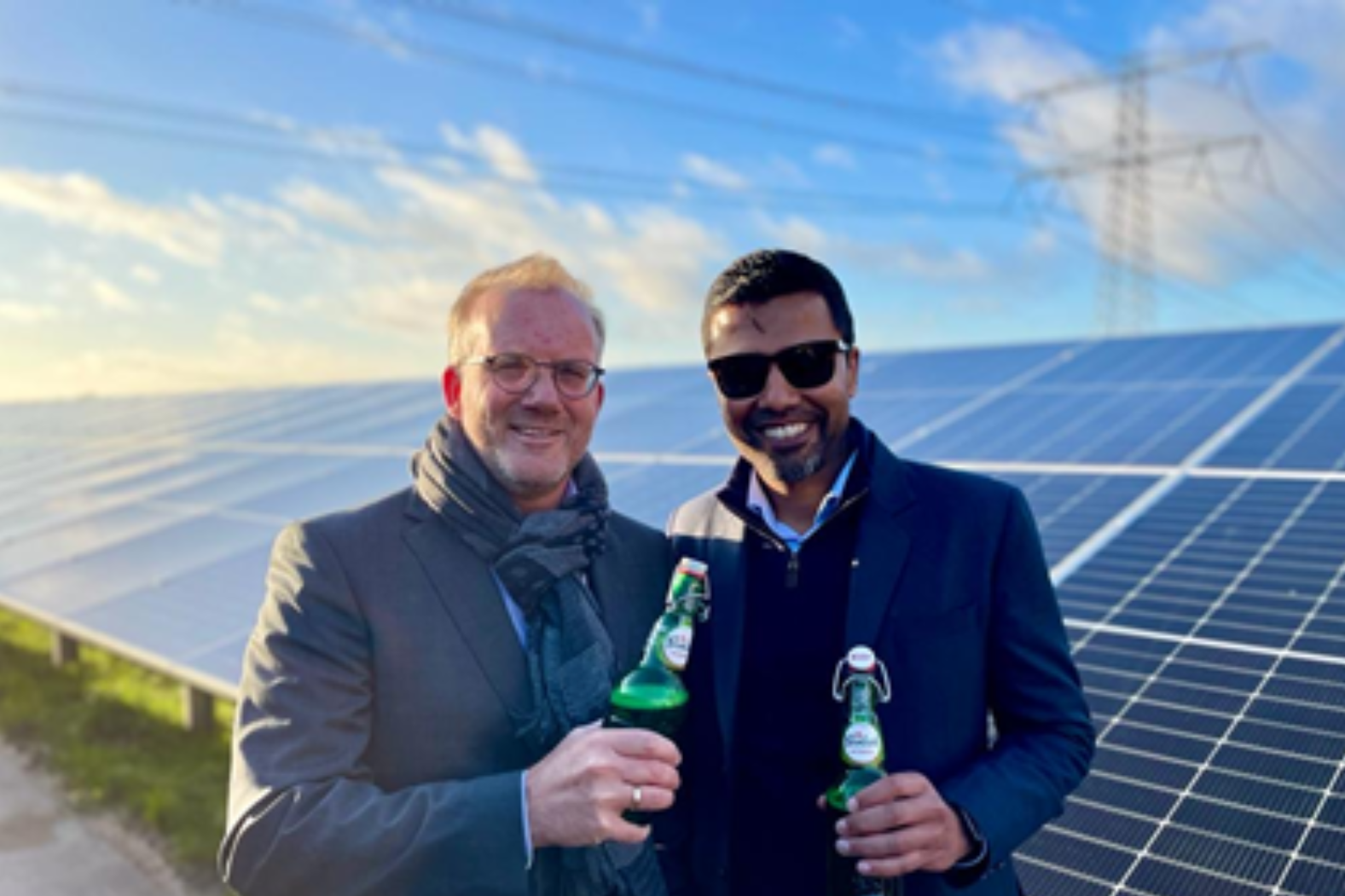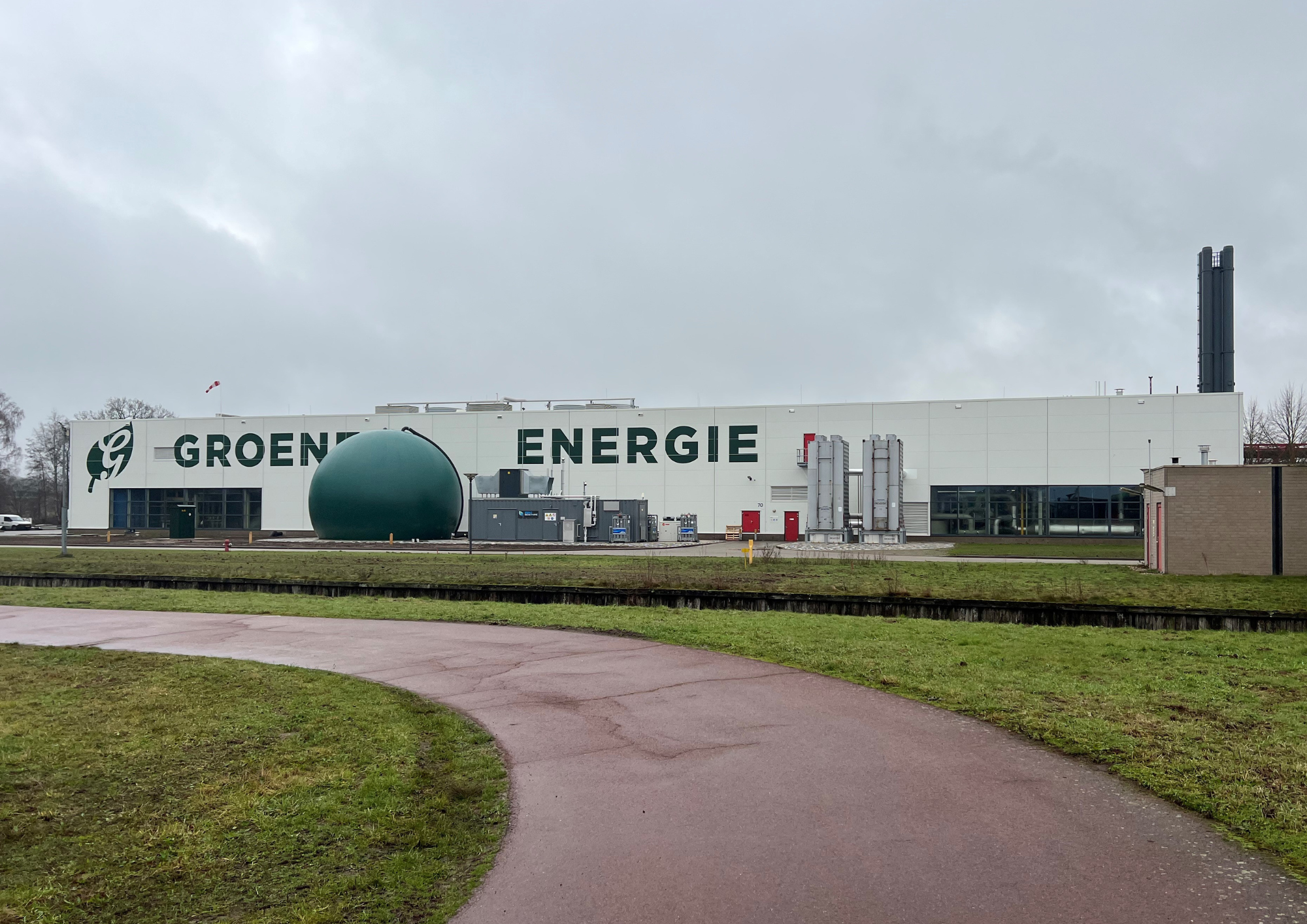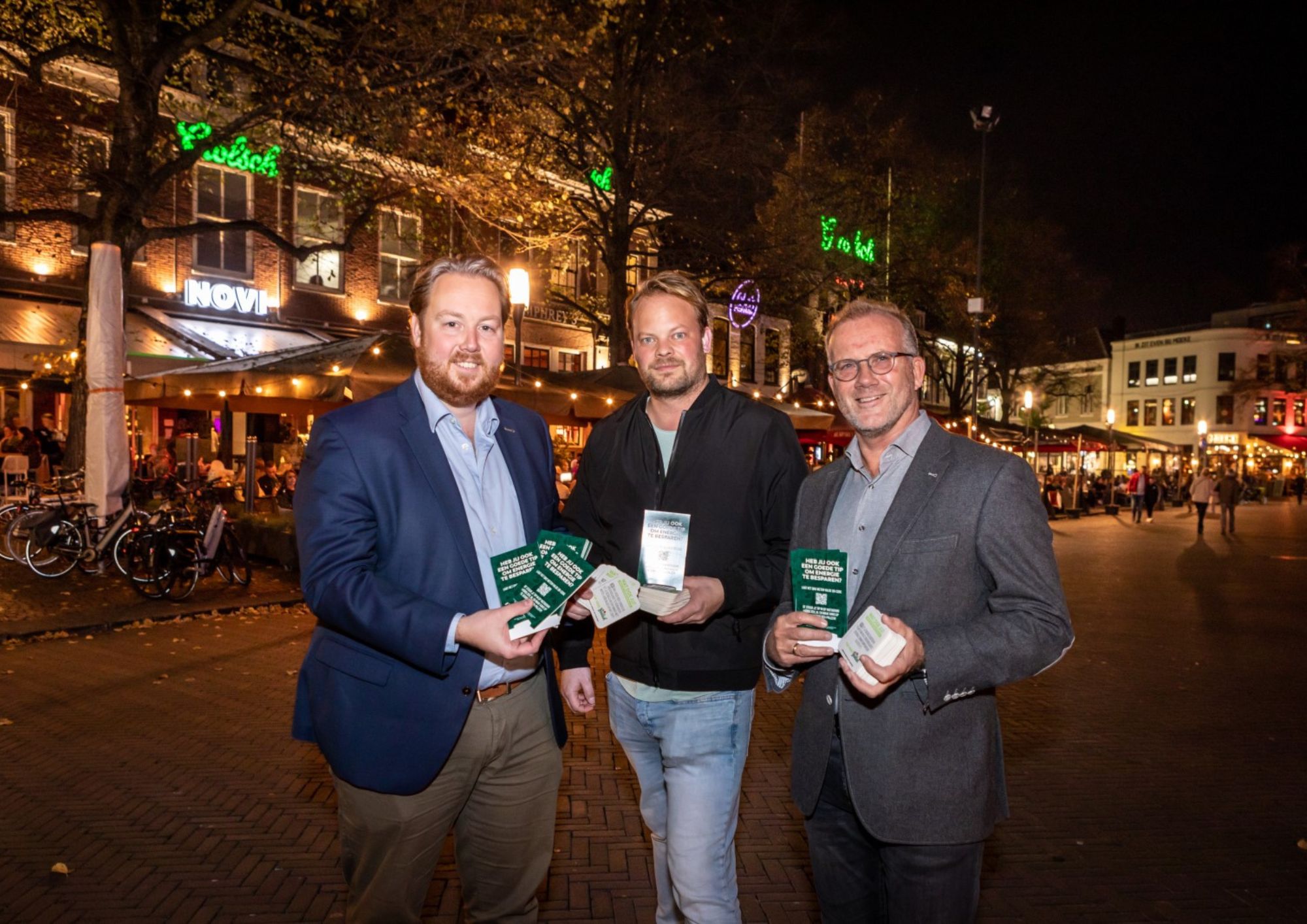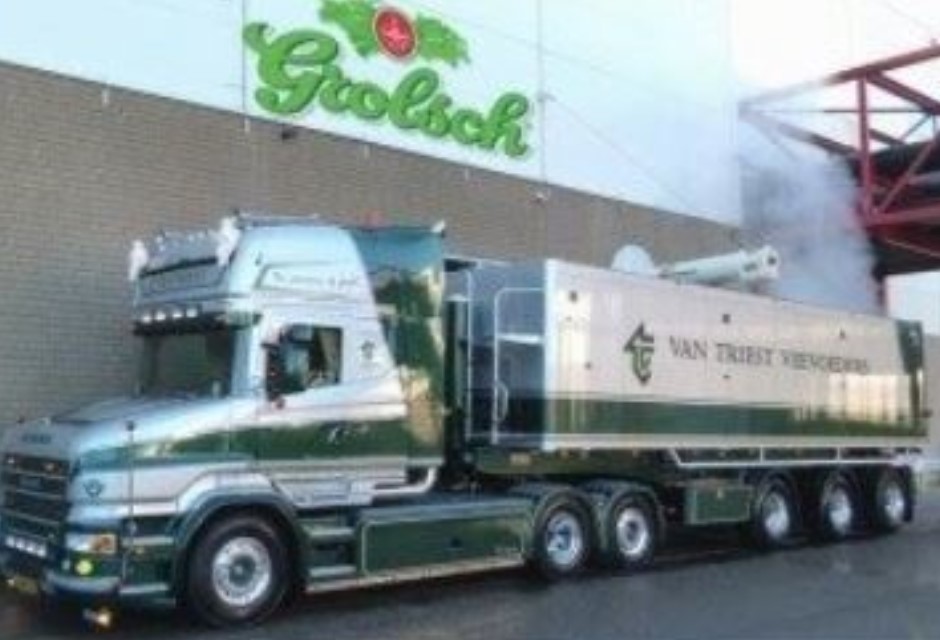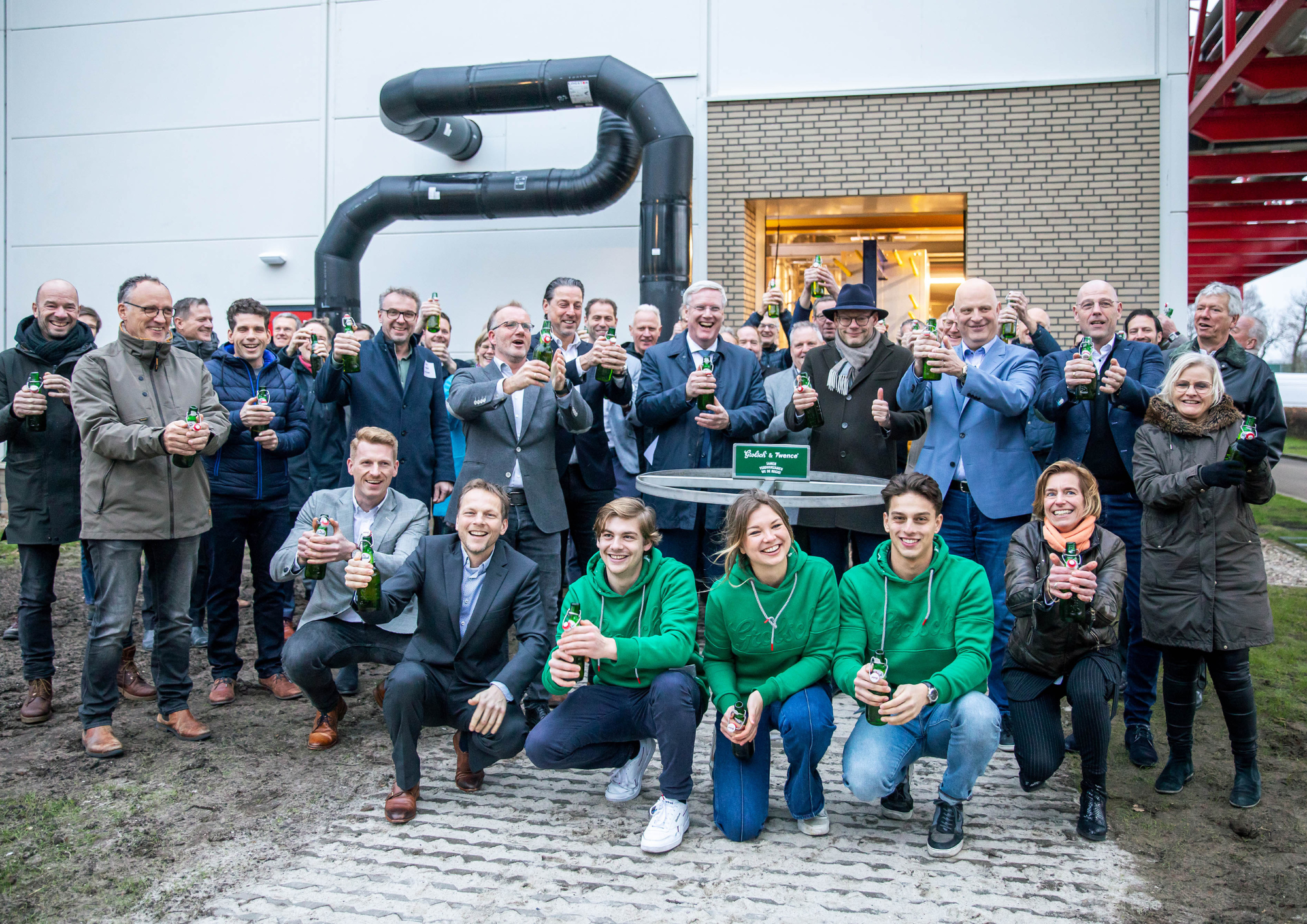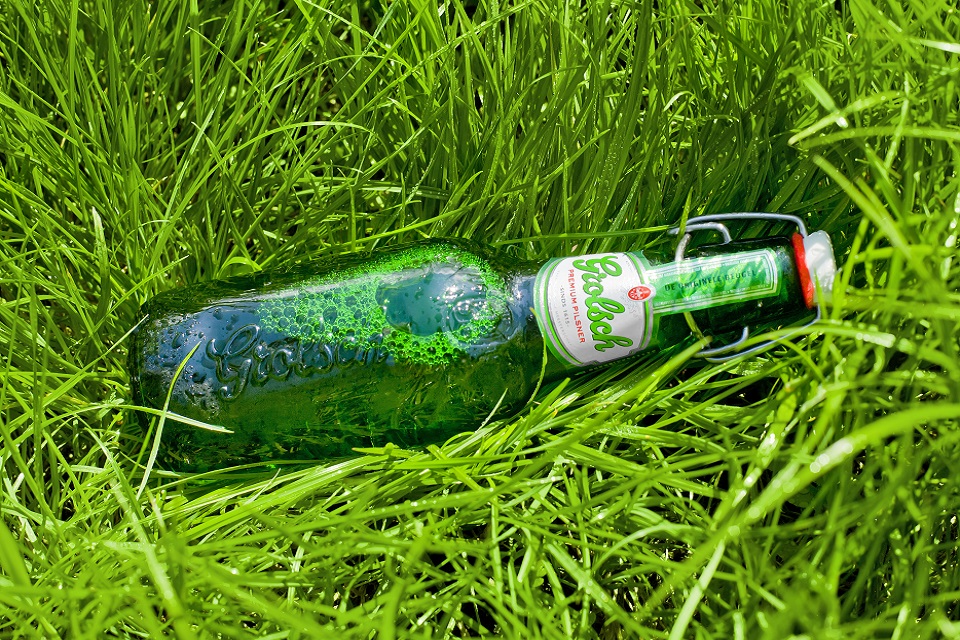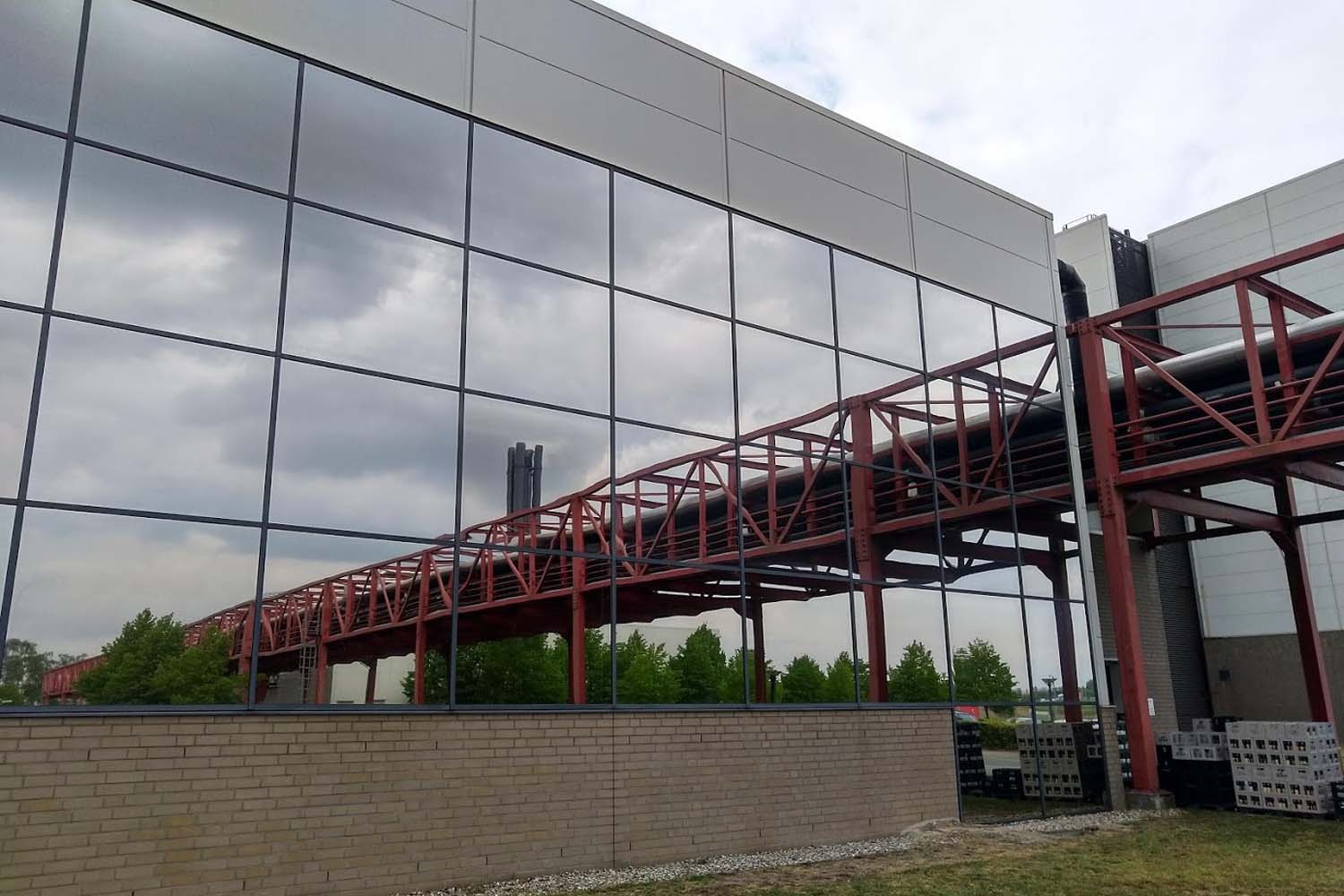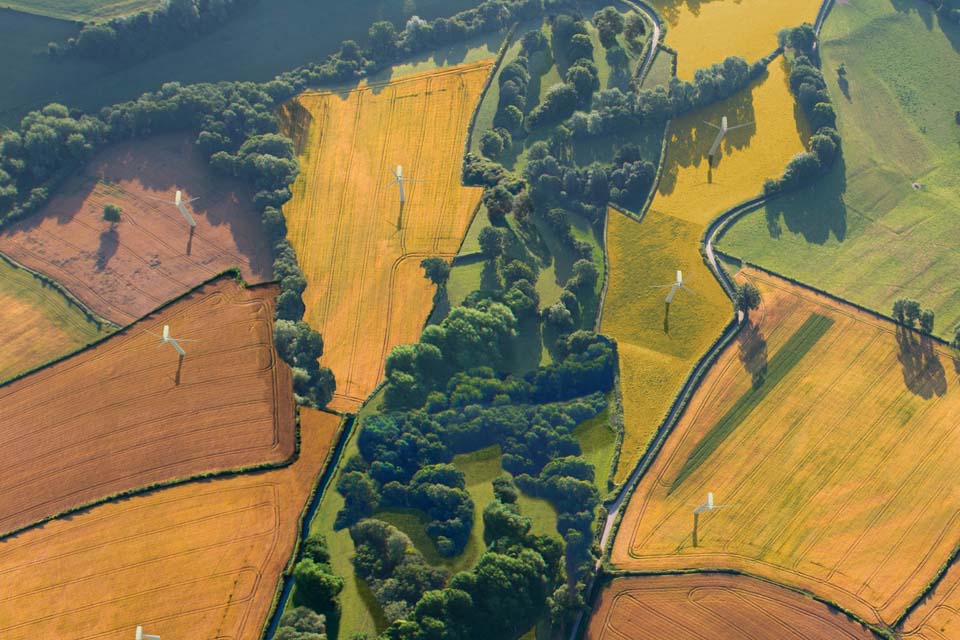CO2-neutral brewery in 2030
Reducing CO2 & energy consumption
Susan Ladrak
"Our ambition is a CO2 neutral brewery by 2030."
Reducing CO₂ & energy consumption
It is our ambition to be an entirely carbon-neutral brewery by 2030, in which all energy we use is generated in a sustainable manner. We are proud of the good results we have achieved in recent years and will continue to make every effort to achieve this goal in the coming years.
Objective
TDE (Total Direct Energy) necessary for the production and filling of our products: 84.54 MJ/hl.
Result
In 2023, the TDE of the brewery was 97.4 MJ/hl; the main causes were lower efficiency of the filling lines and a lower volume than planned.
Objective
Beer/CO2 efficiency: 1.0 kgCO2eq/hl.
Result
Beer/CO2 efficiency: 0.69 kg CO2eq/hl. The heat supply project with Twence yielded more than initially included in the targets.
Objective
Improve the efficiency of packaging our beer.
Result
Unfortunately, we did not make the progress we hoped to. A detailed plan has been drawn up to make significant progress in this regard in 2024.
Objective
Install solar panels in our parking area for charging electric cars with self-generated electricity.
Result
Done.
Objective
Switch off the decorative lightin in the yeast/ageing cellars during the night.
Result
Done.
Objective
Optimise the heat exchange at the bottle washing machines on the return lines.
Result
Done.
Objective
Optimise compressed aird consumption including reducing leaks.
Result
Done.
Objective
Optimise the control of the cooling system, making the most optimal use of the condensers depending on outside conditions.
Result
Done.
Objective
Detailed development of the design for the final steps to become a CO₂ neutral brewery.
Result
Different concepts have been developed; in 2024 a total plan will be drawn up and presented to Asahi.
Objective
Replace the shrink sleeve machine in the can line (natural gas reduction).
Result
Done. Savings of 16,000m3 of natural gas.
OBJECTIVES 2024
- CO2 emissions target: 0.63 kg CO2eq/hl
- Design of an alternative to steam generator in keg line
- Efficiency improvement in filling lines: taskforces on KL01, 02 and 03
Susan Ladrak, Sustainability Manager - Royal Grolsch
"We reduce our brewery’s overall carbon emissions every year, but there is still a lot we have to do if we want to be 90% climate neutral by 2050, as is stipulated by the 2015 Paris Climate Agreement. Governments and companies committed themselves to these objectives, and that includes Grolsch! The commissioning of Twence's heat pipeline will reduce our CO₂ emissions by 72% - about 5,500 tonnes a year - and by 2022 we will have largely switched from fossil energy to renewable energy. A huge step in realising our ambition to be a fully carbon-neutral brewery by 2030. We see it as our responsibility to contribute to a better, greener and circular world."
Activities
Domestic solar energy
From July 2024, brewery Grolsch will go for a multi-year With this switch from European wind energy to Dutch solar energy, we are making an active contribution to the Dutch energy transition and are also taking a nice step towards making our processes more sustainable.
Green gas
Since 2022, we have been producing green gas from our own wastewater. A green gas installation has been installed on the brewery site that will produce 1 million Nm3 of green gas from biogas annually. This corresponds to the gas consumption of about 700 Twente households. The green gas, a sustainable replacement for fossil natural gas, will be blended into the existing natural gas network. With the arrival of the heat pipeline - a sustainable collaboration with Twence - it was necessary to give the biogas produced in the wastewater treatment plant another purpose, in which it will still be put to optimal use. The technology was provided by bioenergy company and fellow townsman HoSt Group. We are very proud of this green, regional cooperation.
'Turn the switch'
Royal Grolsch and the Municipality of Enschede have jointly activated the 'Turn the switch' campaign in Enschede city centre at the end of 2022. The energy-saving campaign was launched nationwide in April 2022 and renewed at the end of 2022. The aim of the campaign is to raise awareness around gas and energy consumption among households and businesses. Through specially designed beer mats, table cards and a social media campaign, attention is drawn to energy saving.
Smart combinations save 200 tons of CO2 per year in transport
Sustainable heat from Twence
100% green energy
Electricity savings for the brewery with sun-resistant foil
At the brewery, a sun-resistant foil is applied to the windows of the filtration area. This foil blocks up to around 60% of the sun's heat radiation. The filtration area is a room that is cooled to 12 degrees to, among other things, prevent the growth of microbiology. The sun-resistant foil decreases the amount of heat radiation that enters the filtration area, thus decreasing the amount of energy required to cool the space. Because we generate this energy ourselves with electricity, the foil provides electricity savings for the brewery of approximately 30,000 kWh per year. This is equivalent to the annual electricity consumption of over 20 households.
Using a heat camera, the difference between a window that has not yet been covered with sun-resistant foil and a window that has been covered with sun-resistant foil has been measured. This measurement showed great results even on a cloudy day. The heat camera showed that, on the inside of the filtration area, a window without foil has a temperature of 19.4 degrees. A window with sun-resistant foil has a temperature of 16.0 degrees. The temperature difference between the glass and the filtration area itself is approximately halved by applying the sun-resistant foil - in cloudy weather.
Energy Transition Plan
It is our ambition to be an entirely carbon-neutral brewery by 2025, in which all energy we use is generated in a sustainable manner. To this end, we will continue to reduce energy consumption and increase biogas production. In addition, we are working towards replacing fossil fuels with sustainable, carbon-neutral energy sources. This led us to switch to sustainably generated electricity on 1 January 2020, for instance. This move alone is set to reduce carbon emissions by approximately 50%.
In order to become entirely carbon neutral, all energy used must be generated in a sustainable manner. We have drawn up a roadmap for this purpose and are currently working hard to put the first steps into practice. We want to be able to fulfil approximately 2/3 of our heat requirement sustainably by 2023, by means of the following projects: Biogas Optimisation, Test for replacement incinerator, and Sustainable heat supply from Twence.
